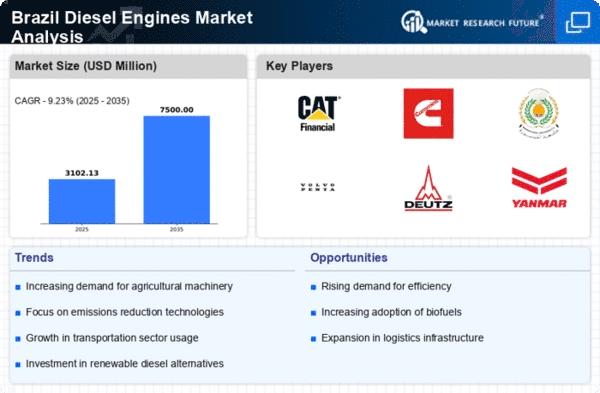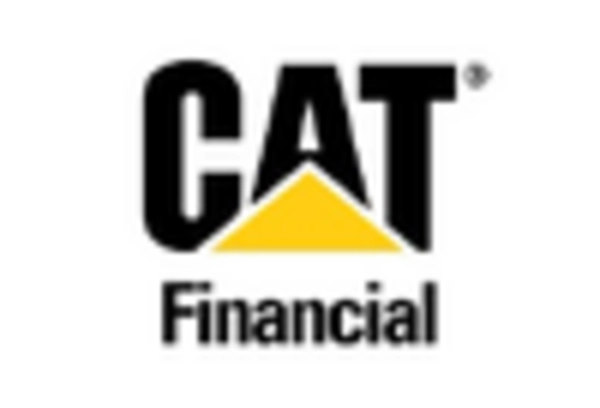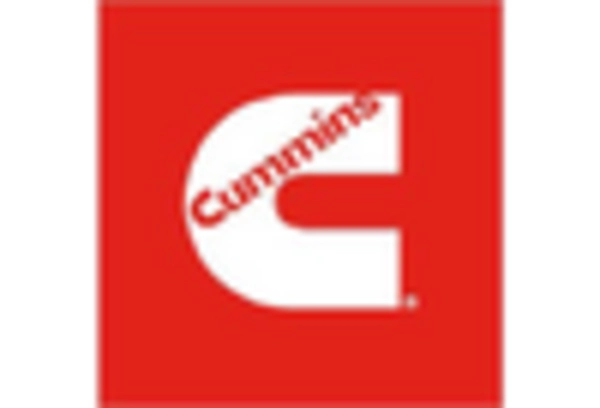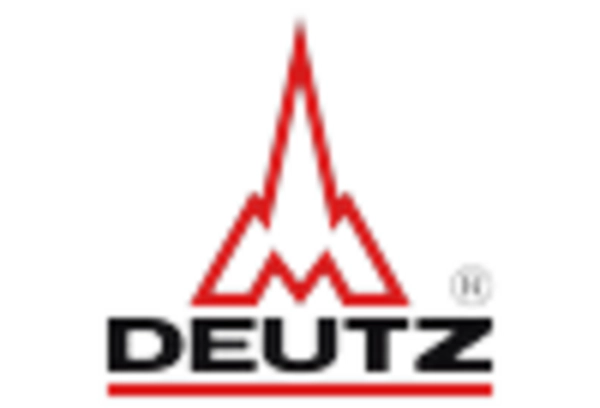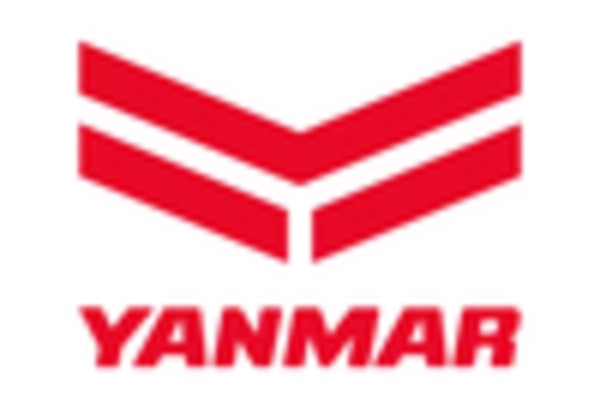Rising Fuel Efficiency Standards
The diesel engines market in Brazil is experiencing a notable shift due to the implementation of stricter fuel efficiency standards. These regulations, aimed at reducing emissions and promoting sustainability, compel manufacturers to innovate and enhance the efficiency of diesel engines. As a result, the market is witnessing a surge in demand for advanced engine technologies that comply with these standards. The Brazilian government has set ambitious targets, aiming for a 20% reduction in fuel consumption by 2030. This regulatory environment not only drives technological advancements but also influences consumer preferences, as buyers increasingly seek fuel-efficient options. Consequently, the diesel engines market is likely to see a significant transformation, with manufacturers investing heavily in research and development to meet these evolving standards.
Expansion of Infrastructure Projects
Brazil's ongoing infrastructure development initiatives are significantly impacting the diesel engines market. The government has allocated substantial funding for various projects, including road construction, public transportation, and energy generation. This investment is expected to boost the demand for heavy-duty diesel engines, particularly in construction and logistics sectors. According to recent estimates, infrastructure spending in Brazil is projected to reach approximately $100 billion by 2027, creating a robust market for diesel engines. As these projects progress, the need for reliable and powerful diesel engines becomes increasingly critical, thereby driving growth in the market. The diesel engines market is poised to benefit from this trend. Construction companies and logistics providers seek durable and efficient engines to support their operations.
Growth in Agricultural Mechanization
The agricultural sector in Brazil is undergoing a transformation, with increased mechanization driving demand for diesel engines. As farmers seek to enhance productivity and efficiency, the reliance on diesel-powered machinery is becoming more pronounced. Tractors, harvesters, and other agricultural equipment predominantly utilize diesel engines due to their power and fuel efficiency. Recent statistics suggest that the agricultural machinery market in Brazil is projected to grow by approximately 5% annually, further propelling the diesel engines market. This trend is likely to continue as advancements in agricultural technology encourage the adoption of more efficient and powerful diesel engines. Consequently, the diesel engines market is expected to benefit from the ongoing growth in agricultural mechanization, as farmers invest in modern equipment to optimize their operations.
Technological Innovations in Emission Control
Technological advancements in emission control systems are reshaping the diesel engines market in Brazil. Manufacturers are increasingly integrating advanced technologies such as selective catalytic reduction (SCR) and exhaust gas recirculation (EGR) to meet stringent environmental regulations. These innovations not only enhance engine performance but also significantly reduce harmful emissions, aligning with Brazil's commitment to environmental sustainability. The market is likely to see a rise in demand for engines equipped with these technologies, as consumers and businesses become more environmentally conscious. Furthermore, the Brazilian government is incentivizing the adoption of cleaner technologies, which could further stimulate growth in the diesel engines market. As a result, manufacturers are expected to invest in research and development to create engines that meet both performance and environmental standards.
Increased Adoption in Commercial Transportation
The commercial transportation sector in Brazil is witnessing a significant uptick in the adoption of diesel engines, primarily due to their reliability and efficiency. With the rise of e-commerce and logistics demands, the need for robust transportation solutions has never been greater. Diesel engines are favored for their ability to handle heavy loads and long distances, making them ideal for freight and delivery services. Recent data indicates that the commercial vehicle segment accounts for over 60% of the diesel engines market in Brazil. This trend is likely to continue as businesses prioritize operational efficiency and cost-effectiveness. The diesel engines market is thus expected to expand, driven by the growing reliance on diesel-powered vehicles in the commercial sector.


